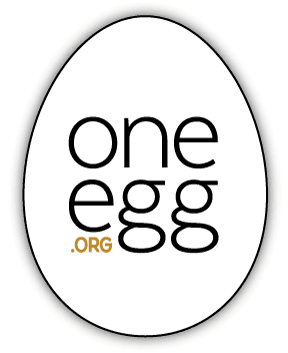The OneEgg Story
OneEgg started as a conversation and shared vision between a business man from Memphis, a church leader in Rwanda and a young woman at Tyson Foods Inc.
These three were deeply committed to finding ways to deliver animal protein to some of the world's most vulnerable children. In 2008, it was a dream of Tyson Foods Inc. and Cobb-Vantress Inc. to review the reality of animal source protein’s availability in undernourished cultures around the world starting primarily with Africa. This included interests to also explore philanthropy opportunities, sustainable agriculture models and introduce jobs to the local economy.
In the beginning, the team began to explore alternatives to gathering animal protein and spent several months on the continent researching opportunities. Through visits to various countries, the group realized the diverse ways in which locals pursued animal protein sources, including free range cattle, goats, sheep and other indigenous chickens. The team noticed an opportunity to improve affordability, consistency, and scalability through known, proven methods.
After review, the team decided the most efficient way to supply animal protein would be through a poultry-laying farm using modern genetics. Likewise, the diets of partnering preschools became the primary recipients. Starting in Rwanda, the team began to build four chicken houses in the northern region and the first flock was placed. By faithful service and dedication of workers on the farm, the sustainable operation developed. Additionally, the team set a goal of distributing over 30,000 eggs a week into the local market place. As a result, animal protein availability became a reality in the form of an egg.
With protein now available in the communities of Northern Rwanda through the form of an egg, OneEgg was born.
Over time, the team acknowledged how ingredient feed was identified as a major cost factor to producing the egg. As growth continued, the team considered different ways to manufacture the feed required in-house to produce the eggs because access to professional feed was non-existent and quality was never consistent enough to service its purpose. Through several brainstorming sessions, the team identified the key to ensuring a sustainable agribusiness model was maintaining consistent feed inputs. Through the commercial feedmill made possible through a partnership with the African Sustainable Agriculture Projects foundation, chicken feed now contained the proper protein, amino acids balance and consistent calcium levels to become a self-sustainable supply of eggs for the OneEgg program. A second area which OneEgg has begun to improve is an emphasis on the freshness of eggs amidst cold supply chain challenges. Amidst fresh eggs being less common, OneEgg’s work in consignment contracts has helped to ensure the stable and fresher supply of egg deliveries. As operations continued in Rwanda, another group began researching opportunities to introduce animal protein to elevate the nutritional landscape of Haiti. At the time, protein was very concentrated near the capital Port du Prince without any extensions and availability to the rural areas of Haiti where the need remained unexplored. Diving into this unknown, two partners with extensive development experience in Haiti launched a pilot to test the OneEgg model of connecting existing local egg markets beyond the traditional capital area to rural areas. The operation grew and has supported children at partnering preschools, orphanages, and medical clinics. This operation marked a significant checkpoint as OneEgg’s first economically sustainable egg farm in Haiti.
Through media, the reach of OneEgg extended and curiosity across the globe grew. Over several years the list of in-country partners diversified and the connectivity of knowledge sharing strengthened. Tyson Foods made a push to provide visibility on efforts in Haiti as a global agriculture leader. A new partnership with a regional agriculture team in Nepal enabled several more schools and orphanages to begin receiving eggs. In Honduras, a partnership with another non-profit helped to show the value of overlapping egg consumption with public health as well as the power of working together with in-country missionaries and a school principal to provide protein to several public schools. In Ethiopia, OneEgg partnered with long-standing education organization Project Mercy to provide eggs to another chapter. In Mozambique, the well planted agricultural organization Eggs for Africa helped deliver eggs to school and orphanages beyond the capital city, proving protein in rural areas was possible. Starting with buying eggs on the existing market, the team progressed to producing in-house eggs through a layer farm then added a broiler farm afterwards.
Over the last decade, OneEgg has become a rooted organization that facilitates local connections, acts as a technical resource on egg layer operations, serves as a financial bridge for chapters and informs the public as a knowledge provider. The international growth reflects OneEgg’s focus to connect with locals and empower them with the knowledge needed to start and communicate their efforts to supporters on a consistent basis. In each moment, the team navigated through potential road blocks (high salinity water sources, political dynamics) with confidence in the mission to deliver eggs.
Looking ahead, our team remains focused on investing in communities through both agribusiness as well as charitable donations of eggs. Our mission to reach those disconnected from the vital sources of animal protein remains the singular focus each year, persevering through worldwide pandemics and economic volatility in the countries we serve.





